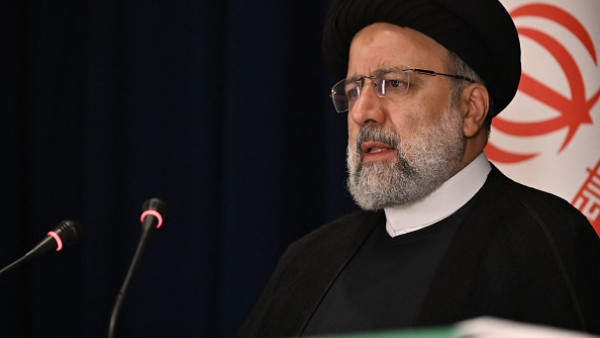The death of Iran’s president has seen a cautious response from the US. [Getty]
The sudden death of Iranian President Ebrahim Raisi has seen little response from the US, likely a sign of the two countries’ tense and delicate relationship.
Following the fatal helicopter crash of Raisi and seven others, including the country’s foreign minister Hossein Amir Abdollahian, there have been only a handful of comments from US public officials.
Several right-wing members of Congress wrote on social media celebratory send-offs to the Iranian leader, with Representative Mike Waltz posting on X, formerly Twitter, “Good riddance. Raisi was a murderous human rights abuser before and during his Presidency.” Meanwhile, President Joe Biden’s administration offered brief but polite condolences.
“The United States expresses its official condolences for the death of Iranian President Ebrahim Raisi, Foreign Minister Amir-Abdollahian, and other members of their delegation in a helicopter crash in northwest Iran,” said US State Department spokesman Matthew Miller, in a short statement on Monday.
He emphasised, “As Iran selects a new president, we reaffirm our support for the Iranian people and their struggle for human rights and fundamental freedoms.”
This short but carefully worded statement could be telling far more with its absence of words, say longtime observers of the two countries’ relationship.
“No matter what the Americans say, it won’t work for them,” James Devine, associate professor of politics and international relations at Mount Allison University, told The New Arab.
“If they criticise Raisi right after he’s died, it’s not good form. If they praise him, it’s even worse. There’s nothing they can really say in this context. Are they watching the situation closely? Absolutely. But there’s not a lot they can say in public,” he said.
The US and Iran have had a tense and distant relationship ever since the 1979 Islamic revolution when student protesters took more than 50 US citizens hostages for around a year and a half. The US Congress then designated Iran as a state sponsor of terrorism, and the two countries have not had direct diplomatic relations since that period.
Since coming to office, Biden has been carefully trying to renegotiate what’s commonly referred to as the Iran nuclear deal (intended to deter nuclear proliferation through diplomatic and economic incentives), initiated under former President Barack Obama in 2015 and withdrawn by former President Trump in 2018. So far, the Biden administration’s talks with Iran have been generally indirect and low-profile.
While Iran’s president is the country’s highest-ranking publicly elected official, he is not the head of state, who is the Ayatollah Ali Khomeini. The president’s death is unlikely to change much politically, including whatever low-profile diplomatic headway the two countries might have made in recent months.
“At least the Iranians and the Americans are talking to each other secondhand,” said Devine. “But this does raise questions about what kinds of contacts they’ll have.”


